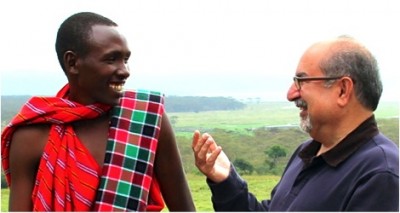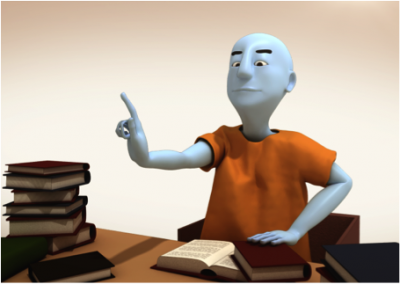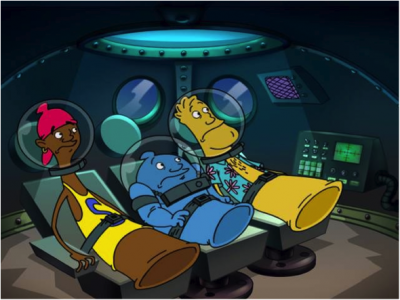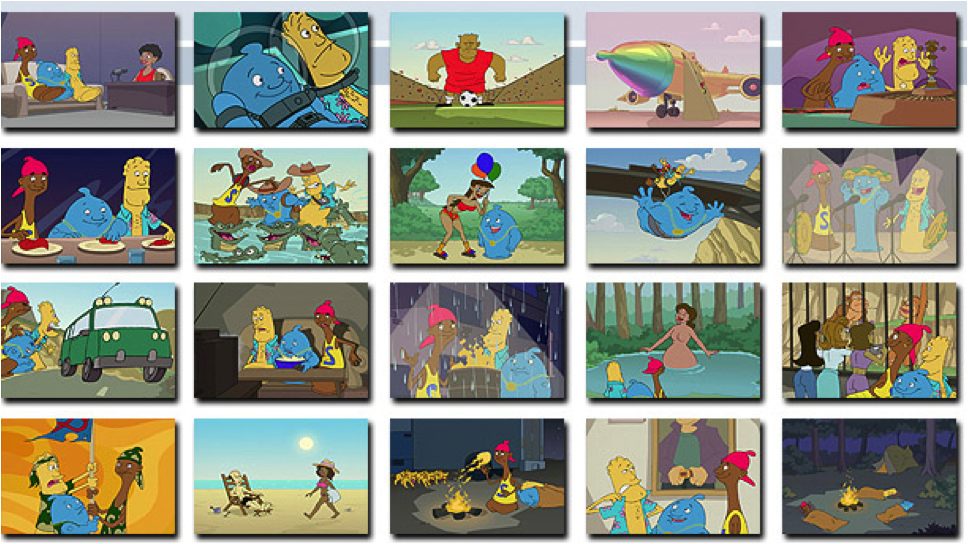 By Josee Beaudry, Department of Psychology, Carleton University
By Josee Beaudry, Department of Psychology, Carleton University
Firdaus Kharas: Creator of Chocolate Moose Media and World Renowned Social Entrepreneur
Empathy, ambition, compassion, intelligence and determination are all traits the world renowned social innovator and humanitarian, Firdaus Kharas, possesses. Mr. Kharas is a social entrepreneur whose work primarily consists of strategically and skillfully creating animated public service announcements to address important and controversial issues most people are afraid to even acknowledge. These issues range from spousal abuse, rape, HIV/AIDS, malaria, Polio, violence, Ebola, solar energy, and safe-sex. However, he does not just discuss these issues; he does so through animation and comedy. Now, you may be wondering, how does one make issues like rape funny? It’s not easy. But getting people’s attention can only be achieved through wit.
 To truly understand Kharas’s work we can first look at how it all started. When asked this question, Kharas had immediately said “Mother Theresa”. He went on to say that at the age of only 8 years old Kharas’s mother took him to see Mother Theresa at work. That day is still vividly etched into his mind as if it were yesterday. He saw her there, working in a large room filled with the poor lying ill and dying on cots. At that moment Kharas experienced emotions and feelings most people in his position would have as well. He felt empathetic and worried for those less fortunate. It was also the day he began to understand there is something to gain by working outside one’s comfort zone. From then on he felt a pull to step outside his own in order to help those in need.
To truly understand Kharas’s work we can first look at how it all started. When asked this question, Kharas had immediately said “Mother Theresa”. He went on to say that at the age of only 8 years old Kharas’s mother took him to see Mother Theresa at work. That day is still vividly etched into his mind as if it were yesterday. He saw her there, working in a large room filled with the poor lying ill and dying on cots. At that moment Kharas experienced emotions and feelings most people in his position would have as well. He felt empathetic and worried for those less fortunate. It was also the day he began to understand there is something to gain by working outside one’s comfort zone. From then on he felt a pull to step outside his own in order to help those in need.
His work in creating short animations for social change started with UNICEF. In the mid 1990’s Kharas worked on and distributed Cartoons for Children’s Rights. He helped produced over 100 animated clips depicting children’s rights, such as the right to protection against child labor. Approximately 2,200 broadcasters shared these videos and over one billion people saw them. The project was a major success and it ultimately became one of the most viewed animated media worldwide. This result led Kharas to realize that animation was an extremely effective way in communicating to the public.
Kharas addresses many issues others may find controversial and difficult to discuss. Issues that most definitely stand out are rape and domestic violence. How does one create an animation about rape and how can someone make it seem funny enough that people actually listen? At first glance, many individuals may think using humor may belittle the issue at hand. However, by using humor through animation Firdaus Kharas is able to reach out to a greater population and speak to individuals who normally ignore such issues due to their unsettling qualities.
 Kharas creates what is called the No Excuses campaign. He believed no one was really tackling the issue of domestic violence properly. Campaigns primarily presented the issue using images of battered women. In Kharas’s opinion, this further stigmatizes women, perpetuates the idea of the abuse, and it doesn’t do anything to address the behavior of the abuser rather than the victim. No Excuses was strictly designed to protect the victim and change the behavior of the abuser. Despite the importance of this project, and its broad distribution, he received absolutely no funding and this campaign relied solely on volunteers and his own money.
Kharas creates what is called the No Excuses campaign. He believed no one was really tackling the issue of domestic violence properly. Campaigns primarily presented the issue using images of battered women. In Kharas’s opinion, this further stigmatizes women, perpetuates the idea of the abuse, and it doesn’t do anything to address the behavior of the abuser rather than the victim. No Excuses was strictly designed to protect the victim and change the behavior of the abuser. Despite the importance of this project, and its broad distribution, he received absolutely no funding and this campaign relied solely on volunteers and his own money.
 The Three Amigos is a series of animated shorts Kharas created to discuss the issue of safe-sex. The Three Amigos (cartoon condoms) was one of the most successful projects because it became world famous, was viewed in over 150 countries by over one billion people, and articles and comics were written about them. In this instance, he also had a measure of success in changing behaviors because the shorts actually drove up condom sales in the countries in which they were shown. He was told by one of the world’s largest social marketers of condoms (who was not a sponsor of the project), that they went from selling 18 million condoms before the animation release to 46 million after and 56 million the next year in Africa. They estimated that they saved 18 thousand people from being infected from sexually transmitted diseases. However, Firdaus has difficulty in defining success. In many of the issues he addresses it is difficult to calculate whether behaviors and attitudes were affected due to the short animations. Nonetheless, if his videos help at least one individual that is what Kharas defines as a success.
The Three Amigos is a series of animated shorts Kharas created to discuss the issue of safe-sex. The Three Amigos (cartoon condoms) was one of the most successful projects because it became world famous, was viewed in over 150 countries by over one billion people, and articles and comics were written about them. In this instance, he also had a measure of success in changing behaviors because the shorts actually drove up condom sales in the countries in which they were shown. He was told by one of the world’s largest social marketers of condoms (who was not a sponsor of the project), that they went from selling 18 million condoms before the animation release to 46 million after and 56 million the next year in Africa. They estimated that they saved 18 thousand people from being infected from sexually transmitted diseases. However, Firdaus has difficulty in defining success. In many of the issues he addresses it is difficult to calculate whether behaviors and attitudes were affected due to the short animations. Nonetheless, if his videos help at least one individual that is what Kharas defines as a success.
Kharas says, people everywhere matter; they have fundamental rights as human beings. Kharas believes that we can communicate with each other despite various barriers that separate us. These barriers may be due to history, geography, language and physical borders; either way conversation can be made. Communications can help us breach our differences and create understanding and hopefully someday return us to the concept of one human family. Each of the projects he has taken on has its own challenges and obstacles, but to Kharas the belief of creating a worldwide conversation in order to bring everyone together to improve the human condition is what makes his work worthwhile.
On September 23, Firdaus Kharas delivered a public lecture on how Laughter & Animation Saves Lives. If you missed the lecture, you can watch it on Youtube.